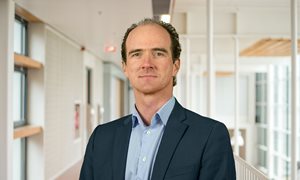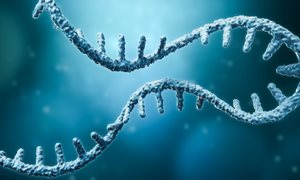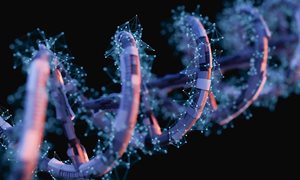31 May 2017
Vidi grant for Vivian Weerdesteyn - Theme Disorders of movement
Following a stroke, humans often struggle with balance and walking. This impacts their safety and autonomy tremendously, which is a problem especially in our aging society. It is still unknown how different neural pathways contribute to the recovery of balance and walking after a stroke. Dr. Weerdesteyn and her colleagues are going to change this. They will furthermore attempt to facilitate recovery through training in order to improve functioning in daily life.
> see the personal page of Vivian Weerdesteyn for more information about her research
 On the way to recovery
On the way to recovery
Vidi grant for Vivian Weerdesteyn - Theme Disorders of movement
Following a stroke, humans often struggle with balance and walking. This impacts their safety and autonomy tremendously, which is a problem especially in our aging society. It is still unknown how different neural pathways contribute to the recovery of balance and walking after a stroke. Dr. Weerdesteyn and her colleagues are going to change this. They will furthermore attempt to facilitate recovery through training in order to improve functioning in daily life.
> see the personal page of Vivian Weerdesteyn for more information about her research
More information
Researcher profile

Related news items

Five million euro’s for joint research on rare movement disorders
29 March 2022 A Dutch consortium will receive almost 5 million euro’s from NWO to jointly start an ambitious project, called CureQ, on various rare and genetic brain disorders that lead to abnormal movements. Bart van de Warrenburg was one of the main applicants of this ‘Nationale Wetenschaps Agenda (NWA)’ grant. read more
Development of RNA therapy for rare movement disorder SCA7 Brain Foundation grant for Radboudumc and LUMC
3 February 2022 Neurologist Bart van de Warrenburg, together with Willeke van Roon-Mom and Annemieke Aartsma-Rus (both LUMC/Dutch Center for RNA Therapeutics), has been awarded 400,000 euros by the Dutch Brain Foundation to develop a genetic therapy for the rare hereditary movement disorder SCA7. read more
Aerobe exercise has a positive effect on brain function in Parkinson's disease patients
18 January 2022 Radboudumc researchers have shown that the brain function of patients with Parkinson's disease improved with regular exercise, which seems to strengthen the connections between different brain areas, while inhibiting brain shrinkage. read more
New genetic defect links cell biology and protein glycosylation
10 November 2021 Peter Linders, Dirk Lefeber and Geert van den Bogaart together with international colleagues have recently reported on novel cell biological insights, by identifying a genetic disorder in syntaxin-5 which allowed to unravel a new mechanism regulating intracellular transportation. read more
Impact of COVID-19 pandemic on mental health of Parkinson's patients
10 November 2021 The COVID-19 pandemic has introduced challenges to the social life and care of people with Parkinson’s disease (PD), which could potentially worsen mental health problems. A new study investigated this associaten and explored whether mental health and quality of life can be improved. read more
